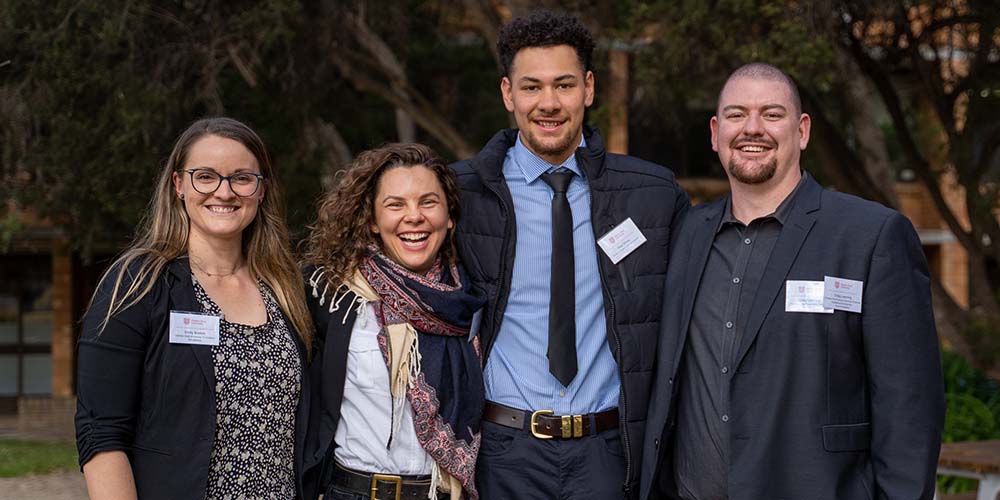Boosting your career with self education can be a real game-changer. Whether you’re upskilling, staying on top of industry trends or changing careers, it’s a smart move. But don’t forget about the potential tax perks. In Australia, certain self-education expenses can be claimed at tax time, cutting down your taxable income. Here’s a quick guide on what you can and can’t claim.
Understanding self-education expenses
The Australian Taxation Office (ATO) defines self-education expenses as costs for courses or training directly linked to your job. To claim a deduction, the course must either enhance your skills or knowledge for your current role or be likely to boost your income in that job.
Here’s a couple of examples to make it clear – one that qualifies and one that doesn’t:
Example 1: course that qualifies for a deduction
James, a registered nurse, takes a nursing graduate certificate to sharpen his skills and enhance patient outcomes. Since this course directly relates to his current job, he qualifies for a self-education expense deduction.
Example 2: course that does not qualify for a deduction
Holly is an accountant at a corporate firm with a passion for photography. She decides to take a part-time photography course at a local college, hoping it might spark a future career change. However, since the course has no connection to her accounting job or her income-producing activities, it doesn’t qualify as a self-education expense. The course doesn’t enhance the skills she needs as an accountant, so Holly can’t claim any costs.
The question of fees – and loans
You can claim a deduction for tuition and student amenities fees if you’re enrolled in a full-fee-paying place in an eligible course. This applies even if you’ve used a FEE-HELP loan to pay the fees and defer payment until you reach a certain level of earning. However, you cannot claim deductions for any voluntary or compulsory repayments of these loans.
You can’t claim tuition fees for a Commonwealth supported place in a course. This includes any fees you pay with the assistance of a HECS-HELP loan.

What you can claim
Boost your tax return by claiming the right expenses! Here are the key education costs that are typically deductible, besides fees:
- Books and stationery
Deduct the cost of books, textbooks and any reference materials essential for your studies. Don’t forget to include everyday stationery items like pens, notebooks and paper. - Equipment and tools
Any equipment or tools needed for your studies – like computers, software or specialised equipment – are deductible. Remember, if these items are used for both study and personal purposes, you’ll need to allocate the deduction based on the percentage of work-related use. - Travel expenses
If attending classes or seminars requires travel, you can claim these expenses. This includes public transport fares and car expenses, which can be calculated using the logbook method or a set rate per kilometre. - Home office expenses
If you’re studying online, you can claim a portion of your home office costs, such as electricity, internet, and depreciation of office furniture and equipment, provided they are used for study purposes. - Internet and phone costs
If you use your internet and phone for study, you can claim a percentage of these expenses. The deductible amount will depend on the proportion of time spent on study versus personal use.

What you can’t claim
Not every cost associated with your studies can be claimed. Here’s what you need to know about non-deductible expenses
- Childcare expenses: Any costs for childcare while you’re studying are not eligible for deductions.
- Meals and accommodation: Generally, daily meals and accommodation are not deductible unless you are required to stay away from home overnight for study purposes.
- Personal expenses: Any expenses not directly related to your course, such as social events with fellow students, are not deductible.
Calculating your deductions
Start by adding up all your eligible expenses. Remember, if an expense is partially for personal use, you need to split it. For instance, if you bought a computer that you use half the time for study and half for personal use, you can only claim 50 per cent of its cost. The ATO offers a self-education expenses calculator to help you figure out exactly how much you can claim, ensuring you don’t miss any deductions – or overclaim.
Record-keeping and documentation
Keeping accurate records is essential when claiming self-education expenses. Make sure to save all invoices, receipts and proof of payment for every expense you plan to claim. Also, retain any documentation that proves the connection between your course and your current job, such as a letter from your employer. Good record-keeping not only helps you claim the right deductions but also safeguards you in case of an ATO audit.
Common mistakes to avoid
When claiming self-education expenses, mistakes can happen. Here’s how to avoid common pitfalls:
- Claiming non-deductible expenses: Know what’s deductible and what isn’t. Check ATO guidelines or ask a tax professional if you’re uncertain.
- Not apportioning expenses: If an item serves both study and personal use, only claim the study-related portion.
- Poor record-keeping: Keep thorough records and documentation to back up your claims.
Consulting a tax professional
Navigating self-education expenses can be tricky. If you’re unsure about what qualifies or how to calculate deductions, consulting a tax professional could be a smart move. A tax adviser not only offers expert, personalised advice but also helps you maximise every eligible deduction. They can guide you through complex tax laws, ensure all claims are accurate and make sure you’re fully compliant with ATO requirements. Plus, they can save you time and stress, letting you focus on your studies while they handle the numbers. Remember, a small investment in professional advice can lead to significant savings and peace of mind at tax time – and you can claim a deduction for the advice.
At Charles Sturt, we want to make education as affordable as possible. So don’t forget to research and apply for any and all scholarships and grants you are eligible for. There are lots of different criteria for securing scholarships, and specific ones for online and postgraduate students.
Our top tip? Apply!



You must be logged in to post a comment.